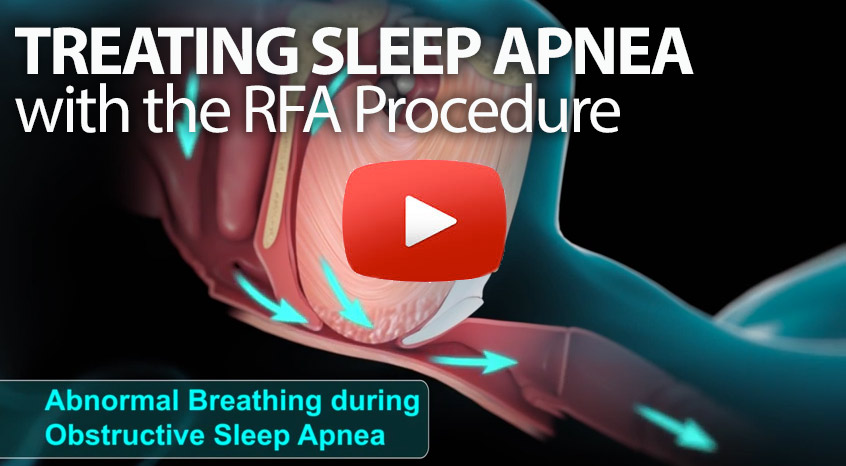Aside from the clear day-time problems associated with sleep deprivation—higher accident rates, reduced mental performance and lower productivity—prolonged lack of sleep, which is a consequence of physical disorders like obstructive sleep apnea (OSA), can seriously affect one’s health, leading to many serious conditions.
Generally, sleep deprivation weakens the immune system, part of the body’s system to combat or control cancer. Studies have shown that cancer grows twice as fast in sleep-deprived mice compared to well-slept mice.
Sleep Deprivation: A Common Problem in Untreated Obstructive Sleep Apnea
Sleeping less than 7 hours per week is considered “insufficient sleep” and sleeping five hours or less per night is considered “severe sleep restriction” and is a common problem for those suffering from untreated obstructive sleep apnea.
This amount of sleep deprivation predisposes to prediabetes. The National Institutes of Health undertook a study to look at sleep and diabetes, and found that night workers are more predisposed to having difficulty controlling their blood sugars and to gaining weight due to sleep deprivation, compared to daytime workers who get adequate amounts of sleep. Individuals who were able to obtain adequate sleep were able to metabolize glucose more efficiently compared to those who had insufficient amounts of sleep. More than 29 million Americans have diabetes; more than 79 million have prediabetes. For many, type 2 diabetes means a CPAP machine.
Studies are ongoing looking at the association of sleep deprivation and the brain, including Alzheimer’s disease. During sleep, the brain clears out toxic substances. Amyloid beta is a protein which is a by-product of normal brain functioning. The process of sleep helps clear this protein from the brain. Amyloid beta is normally cleared much more rapidly during sleep, than while one is awake. Amyloid beta accumulates in the brain with Alzheimer’s disease. In some individuals, amyloid beta isn’t cleared properly from the brain, and this is believed to contribute to brain cell death and Alzheimer’s disease. This results in the association of chronic sleep deprivation and Alzheimer’s disease.
Sleep Deprivation, Chronic Fatigue, and Sleep Apnea
Extended periods of sleep deprivation can lead to daytime chronic fatigue, and chronic fatigue can lead to a concept called “microsleep.” These are momentary bouts of sleep that occur involuntarily and can last up to 5-10 seconds. You can imagine the disaster that ensues if a microsleep occurs while one is driving. There are approximately 5.1 million traffic accidents per year in the United States, and the leading cause of high severity crashes is due to fatigue from sleep deprivation. Unfortunately, there is much that could be done to reduce this accident rate. For example, nearly 40 of the recommendations by the National Transportation Safety Board to reduce fatigue-related accidents have not been implemented. This is especially important in the commercial trucking industry where nearly 2 million 40-ton trucks transport goods across North America’s roads every single day. It is also important to note that, according to the National Sleep Foundation, sleep apnea, a major cause of sleep deprivation, affects 22 million Americans, and 80% of those who suffer from mild to severe sleep apnea are undiagnosed.
We now know that sleeping is not wasted and lost time as was previously thought. To the contrary, sleep is an essential and necessary activity. Quality sleep is as essential to our well-being as is good nutrition, meaningful education, healthy relationships, and daily exercise. We now know that adequate sleep is needed to recharge our internal batteries, freshen our immune system, boost our emotional state, stimulate our creativity, maximize our ability to learn and adapt, sharpen our decision-making abilities, and enhance our quality of life. We should all take a serious look at our unconscious sleeping lives and take the necessary steps to ensure that we are taking this activity seriously—and for those suffering from treatable problems like sleep apnea to get the treatment they need to restore their healthy sleeping patterns.
If you or someone you know is in need of a better night’s sleep, contact us for a no obligation consultation. We are the sleep specialists at Chevy Chase ENT located in the Virginia, Maryland, and Washington D.C. metro area dealing with sleep apnea and sleep-related problems. We can help diagnose your condition, recommend whether a sleep study would be beneficial, and offer you a variety of treatment options including CPAP, Radio Frequency Ablation (RFA) and more.
